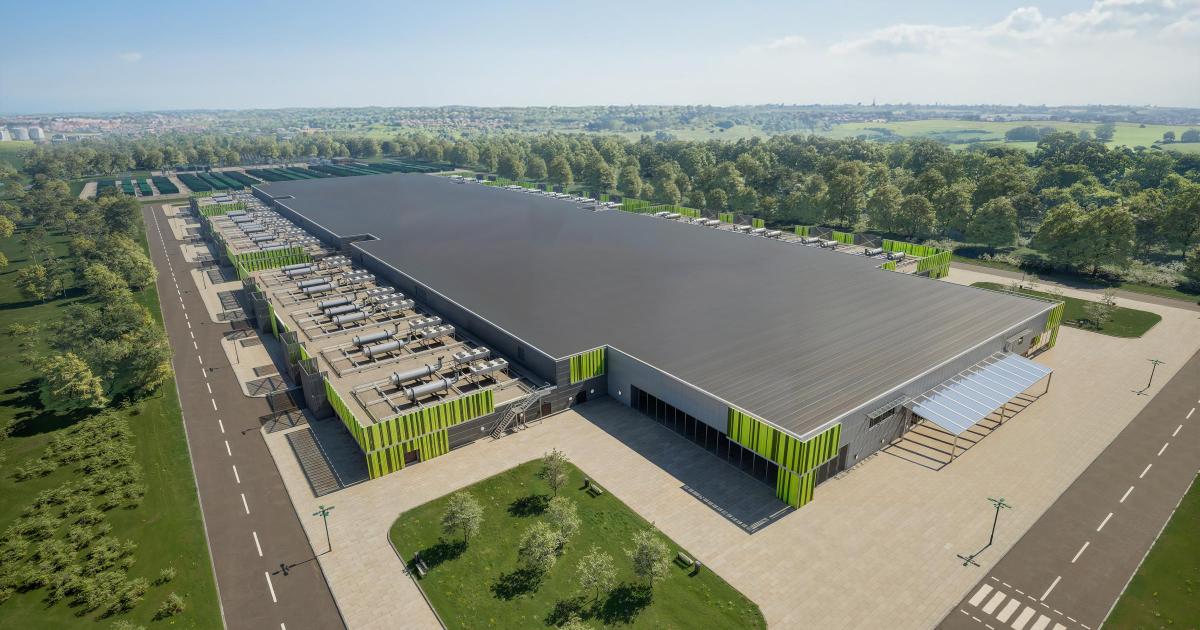The burgeoning market around AI data centers—critical infrastructures for powering large language models like ChatGPT—is facing potential instability, according to a report from the Centre for Public Enterprise, a progressive think tank based in the U.S. The report warns that the current growth, while impressive, masks underlying fragility that may lead to a market correction within the next few years.
Scotland, identified as a prime location for energy- and water-intensive AI data centers, has become a focal point for this discussion. Campaigners have urged Holyrood to consider the implications of such developments, especially in light of the potential for significant economic repercussions if these investments become “stranded.”
The Economic Landscape of AI Growth
The AI sector has been a major contributor to U.S. economic growth, accounting for nearly all growth in the first half of 2025, according to Harvard economist Jason Furman. However, the Centre for Public Enterprise’s report, titled “Bubble or Nothing,” raises flags about the sustainability of this growth, suggesting that a downward market correction is plausible.
Plans for AI data centers, while promising economic growth, have sparked controversy. The centers utilize vast amounts of electricity and water, yet local councils are not mandated to conduct environmental impact assessments before approving such developments.
For instance, Apatura has proposed ten AI data centers in Scotland; however, none have been formally submitted for planning permission. The company has previously downplayed concerns over resource consumption, stating that fears surrounding energy and water use are exaggerated.
Environmental and Societal Impact Concerns
The “Bubble or Nothing” report has reignited debates regarding the long-term viability of these data centers, with campaigners advocating for a more skeptical view of the promised economic advantages. Kat Jones, director of the Action to Protect Rural Scotland pressure group, expressed concern that Scotland risks becoming collateral damage in this AI boom.
“If we allow this to happen, it will be at the expense of the cost of living, as data centers create negligible permanent jobs and use mind-boggling amounts of energy, driving up electricity prices,”
she stated. Jones referenced a moratorium on new housing developments in several London boroughs, which are struggling with energy shortages due to the presence of over 20 data centers in the Isle of Dogs area. Local councils have warned that housebuilding could be stalled for up to a decade due to insufficient electricity supply.
Echoing these concerns, Scottish Greens Member of the Scottish Parliament (MSP) Ariane Burgess voiced the need for a national strategy that aligns data center developments with Scotland’s climate goals. She emphasized that the absence of robust planning guidance and environmental assessments could undermine the country’s climate targets while disproportionately benefiting large multinational corporations.
“Like any business, there must be long-term sustainability, and it is worrying that these costly centers will be built without calculated planning and possibly abandoned just as quickly when the boom is over,”
Burgess remarked.
She further stressed the need for data centers to demonstrate energy efficiency and a commitment to renewable energy sources, as well as to minimize their impact on local ecosystems.
Government Perspectives on AI Data Centers
The Scottish Government has reiterated that planning authorities must consider environmental implications when assessing developments needing planning approval. A spokesperson mentioned that additional procedures are in place for proposals likely to have significant environmental effects, governed by Environmental Impact Assessment Regulations.
At a UK government level, officials described data centers as vital to the economy, facilitating essential services and driving growth. They acknowledged the energy and water demands of these facilities, emphasizing initiatives like the AI Energy Council aimed at ensuring responsible energy use while upholding clean energy ambitions.
As the debate around AI data centers continues, it is clear that a balance needs to be struck between the economic benefits promised by this technology and its environmental impact. The growing scrutiny suggests that a cautious approach is necessary to ensure sustainable development aligned with broader climate objectives.
 GDIT Expands Partnership with Google Public Sector to Enhance AI Solutions for Federal Agencies
GDIT Expands Partnership with Google Public Sector to Enhance AI Solutions for Federal Agencies Nigerian Government Partners with Start-Ups to Leverage AI for Music Revenue Tracking
Nigerian Government Partners with Start-Ups to Leverage AI for Music Revenue Tracking Baumgartner Urges Swift Government Reopening, Refuses Pay Amid Historic Shutdown
Baumgartner Urges Swift Government Reopening, Refuses Pay Amid Historic Shutdown KERI Symposium Reveals Need for New AI Competition Policies to Foster Innovation and Fairness
KERI Symposium Reveals Need for New AI Competition Policies to Foster Innovation and Fairness Paul McCartney Releases Silent Track to Protest AI Copyright Theft, Joins Industry Campaign
Paul McCartney Releases Silent Track to Protest AI Copyright Theft, Joins Industry Campaign










































































